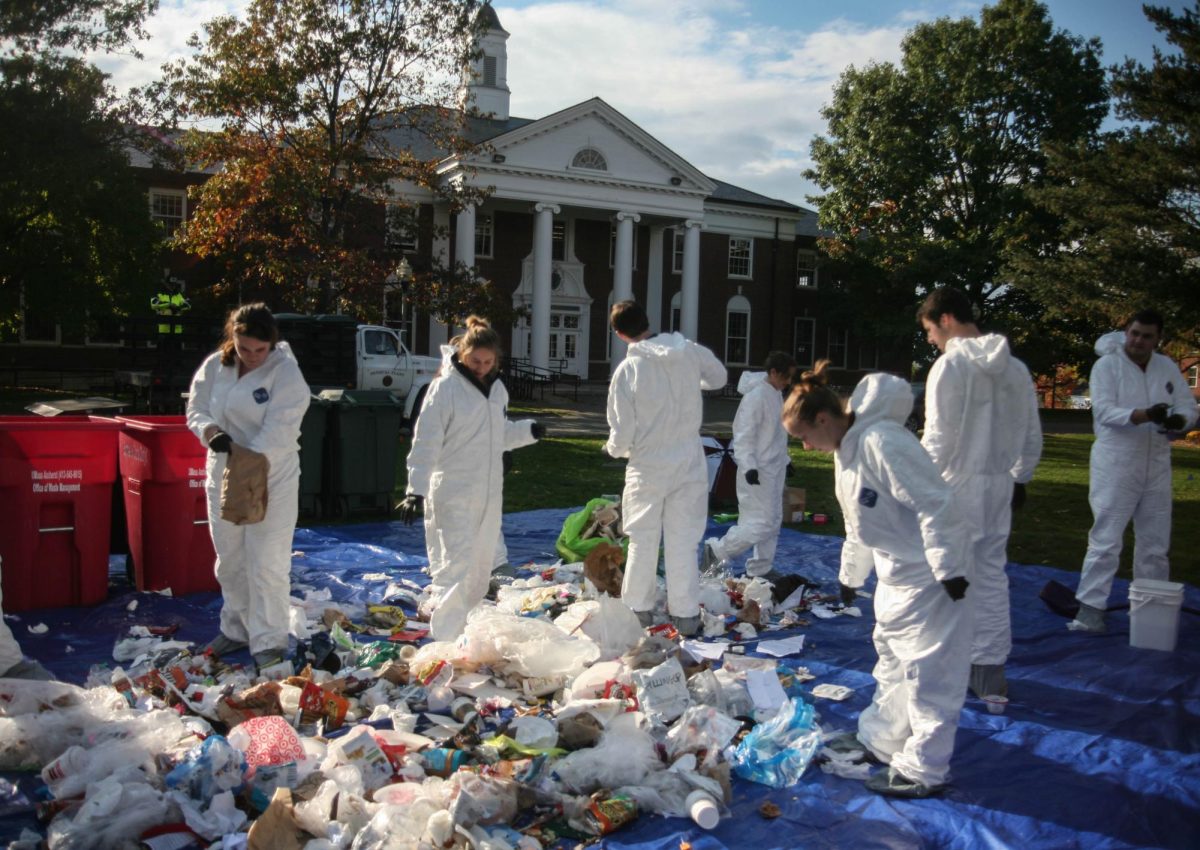The University of Massachusetts Amherst touts itself as an institution that cares about the environment, and yet its actions do not match up to this self-professed concern. Under a section titled, “Sustainable UMass” on its website, it is declared as follows, “At UMass Amherst we are committed to advancing a culture of sustainability where we implement sustainable practices within all aspects of campus operations.” But these words do not ring true. This vapid nature of the mission statement is evident throughout campus, specifically in terms of waste management.
Now, according to the self-reported Sustainability Tracking, Assessment and Rating System (STARS), UMass does have a gold star for sustainability. The 2023 report includes categories like academics and engagement, but within it is one very important category listed under operations: waste. On waste as a whole, UMass scored a 6.98/10.00. Within that is the category waste minimization and diversion, in which UMass scored a 5.29/8.00. These scores don’t appear to be too bad, but UMass is actually one of the lowest performing in these categories.
One would think a university with a supposed gold star for sustainability would at least have sorting bins for garbage, and yet this is not the case.
A simple way to be sustainable is to sort one’s trash into the basic categories: landfill, recycling and compost. It’s taught in elementary schools, it’s simple and many strive to uphold it. But UMass makes it nearly impossible; the bins aren’t outside.
You’re lucky if you even find a trash can on campus, “strategically placed” as they are at Haigis Mall, outside of South College and honestly not many other places. There may be trash cans within buildings, but who wants to walk around carrying their trash between classes? This on-the-go period is when students have the most use for bins to get rid of to-go boxes and other trash they have accumulated. Compost bins are even less accessible than trash cans, which might not immediately seem like a big deal, but is actually quite impactful.
Grab and Go containers used to be compostable but have been transitioned back to just being recyclable. That does not take away from the fact that the containers from Grab and Go are not the only things being thrown away. There is so much food waste that could be composted. The fruits offered in most dining halls for Grab and Go, apples, oranges and bananas, leave waste that could be easily composted. Any food left in a container or from someone’s room goes right in the trash. Even if not everything is compostable anymore, food waste pretty clearly is.
At a university with a sustainability gold star, students carry around compostable food in recyclable containers, with few recycling bins or compost bins in sight.
The UMass Office of Waste Management webpage lists items including organic waste to keep out of the trash, yet its given alternative is to recycle, compost and bring them to the Waste Facility. But the students cannot complete this as there are very few compost bins.
The University could make a real difference and solve the problem at the root if they took simple actions, such as adding more trash, recycling and compost bins. There would be less litter if more trash cans existed on the paths that thousands of students are walking every day. If more compost bins were added, we could take some big steps toward making the campus green. The potential solutions are out there, UMass just needs to implement them.
Mirelle Liimatta can be reached at [email protected].



















